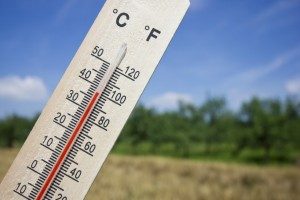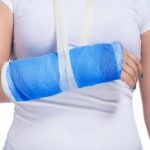 Kidney stones update 2016: Chronic kidney disease, stroke, heart disease, urinary tract infection, kidney failure, and fracture.
Kidney stones update 2016: Chronic kidney disease, stroke, heart disease, urinary tract infection, kidney failure, and fracture.
Kidney stones is a painful problem that can last for weeks in some cases, but you should not suffer when there are ways to get rid of the stones – including natural home remedies.
Advertisement
Kidney stones form when high levels of calcium, sodium, uric acid, or other crystal-forming substances start to build up in a person’s urine to levels the body just can’t get rid of. What happens is, these crystals chemically bond and form a stone inside the kidney. While some stones are small and pass through urine on their own with no symptoms, others can grow large and get lodged in the tube that allows urine to pass from the kidney to the bladder. In these situations, kidney stones cause pain.
Kidney stone pain is nothing to scoff at. Some women have described it as “worse than giving birth”. Knowing how to get rid of kidney stones at home fast can be of great relief to many people. Kidney stones can happen to anyone at any time, so knowing how to get rid of the associated pain may come in handy.
Kidney stones, chronic kidney disease risk may increase with high temperatures: Study
Kidney stones and chronic kidney disease risk may increase with high temperatures. As warmer weather is upon us, the risk of kidney stones is rising, according to research. Researchers found that kidney stone cases are on the rise when the temperatures are hot. They uncovered this association by examining 60,000 Americans in several U.S. cities.
Study lead Gregory E. Tasian said, “We found that as daily temperatures rise, there is a rapid increase in the probability of patients presenting over the next 20 days with kidney stones.”
The researchers analyzed medical records from over 60,000 Americans with kidney stones between 2005 and 2011. The researchers found that when the temperature rose above 50 F (10 C), the risk of kidney stones increased in all the cities the researchers looked at except for Los Angeles. Continue reading…
 Kidney stones in women raise the risk of stroke and coronary heart disease (CHD)
Kidney stones in women raise the risk of stroke and coronary heart disease (CHD)
Kidney stones in women raise the risk of stroke and coronary heart disease (CHD). Lead researcher Yanqiong Liu said, “People should be concerned about kidney stones. Evidence suggests an association between kidney stones and incident cardiovascular disease, even after adjusting for other cardiovascular risk factors.”
The meta-analysis study reviewed over 3.5 million patients of which nearly 50,000 patients reported having kidney stones. Those individuals with kidney stones had a 19 percent higher risk of CHD and a 40 percent higher risk of stroke. Furthermore, women were found to be at a higher risk than men.
Liu added, “The evidence for an increased risk of myocardial infarction in female kidney stones patients but not in male kidney stones patients is suggestive but not conclusive. It was unexpected and difficult to explain. We feel these findings need to be confirmed by further prospective studies, in which the mechanisms underlying this association should be examined.” Continue reading…
 Kidney stones vs. urinary tract infection (UTI) differences in symptoms, causes, and treatment
Kidney stones vs. urinary tract infection (UTI) differences in symptoms, causes, and treatment
Although kidney stones are often described as one of the most painful occurrences a person may experience, in its early stages, the condition may often be confused with urinary tract infections (UTIs) – which may delay treatment. Kidney stones and urinary tract infections share many similarities, but also have distinct differences that tell each condition apart.
The urinary system is comprised of the kidneys, bladder, ureters, and urethra. The kidneys’ main role is to cleanse the blood and allow for waste to be expelled through urine. Urine then travels down the ureters into the bladder where it remains until released.
Infections can occur anywhere along the urinary system, resulting in either bladder infection, kidney infection, urethritis, or urinary tract infection. Infections anywhere in the urinary system can be dangerous if left untreated, so it’s imperative to see your doctor soon after symptom onset in order to begin treatment as soon as possible to minimize complications. Continue reading…
 Dehydration can lead to kidney stones, kidney failure, and cardiac arrest
Dehydration can lead to kidney stones, kidney failure, and cardiac arrest
Dehydration can lead to kidney stones, kidney failure, and cardiac arrest. The risk of dehydration is much higher in the summertime, as the weather is hotter and people are outdoors and being active more often. While running low on liquid intake is usually associated with weakness and malaise, you should also know without proper hydration you may be putting your kidneys and heart at risk.
Less than 75 percent of Americans consume the recommended amount of water throughout the year, according to the Institute of Medicine. Sixty percent of our bodies is comprised of water, so hydration throughout the day is essential – particularly, when you are sweating more.
Dr. Robert G. Silverman, a New York-based doctor, said, “Dehydration means you have a negative fluid balance in your body — you’ve lost more water than you’ve taken in.” Continue reading…
 Kidney stones may increase fracture and broken bone risk: Study
Kidney stones may increase fracture and broken bone risk: Study
Kidney stones may increase fracture and broken bone risk, according to research. Researchers analyzed data from nearly 52,000 British kidney stone patients and over 157,000 individuals without kidney stones.
Advertisement
During a median follow-up period of five years, kidney stone patients were found to be at a significantly higher risk of fractures and broken bones.
Males with kidney stones were 10 percent more likely to suffer broken bones, compared to men without kidney stones. The risk was seen highest among teen males – their risk of bone fractures was 55 percent.
Women with kidney stones had a 17 to 52 percent higher risk of bone fractures, with the highest risk among women aged between 30 and 39. Continue reading…
